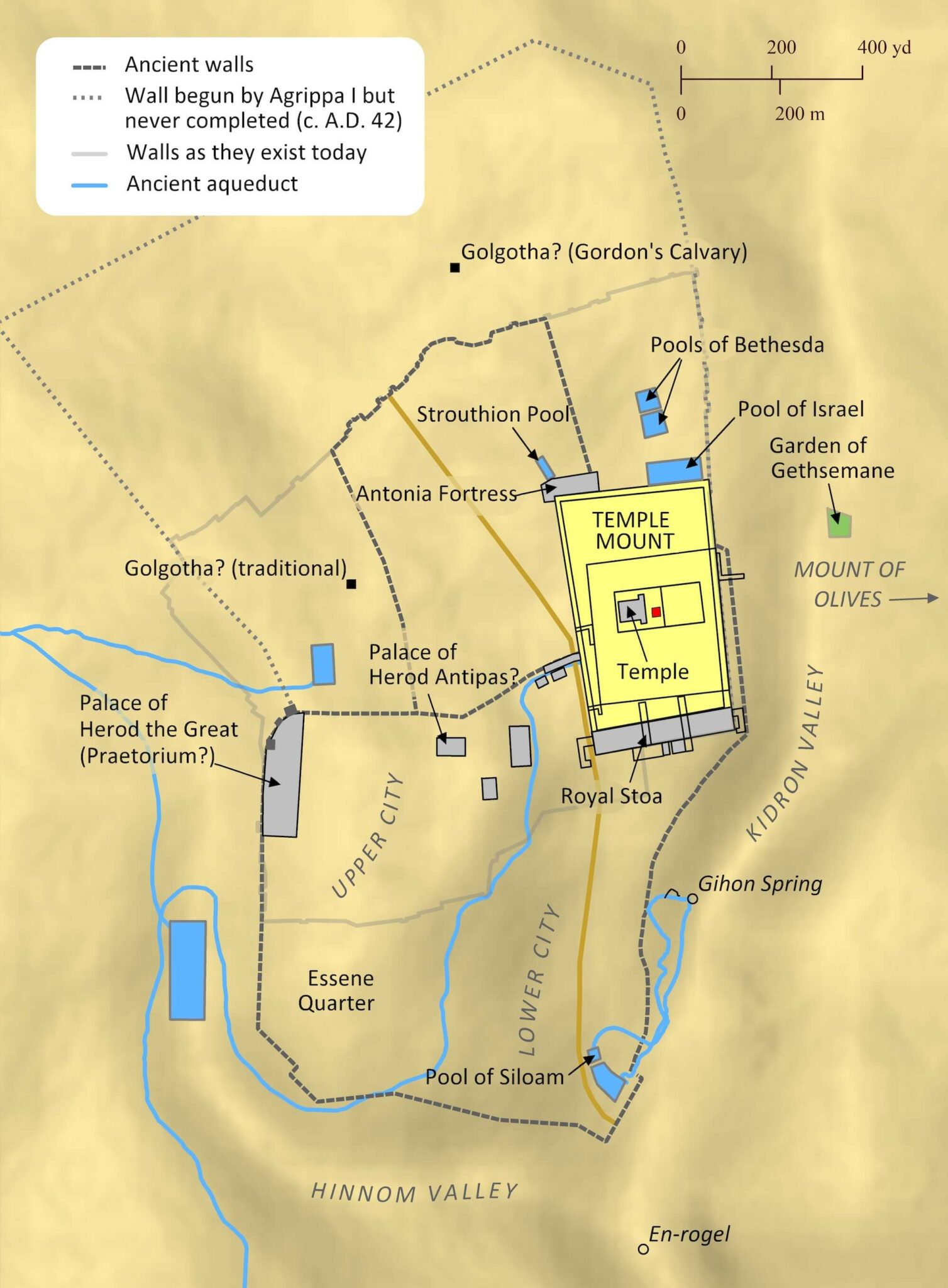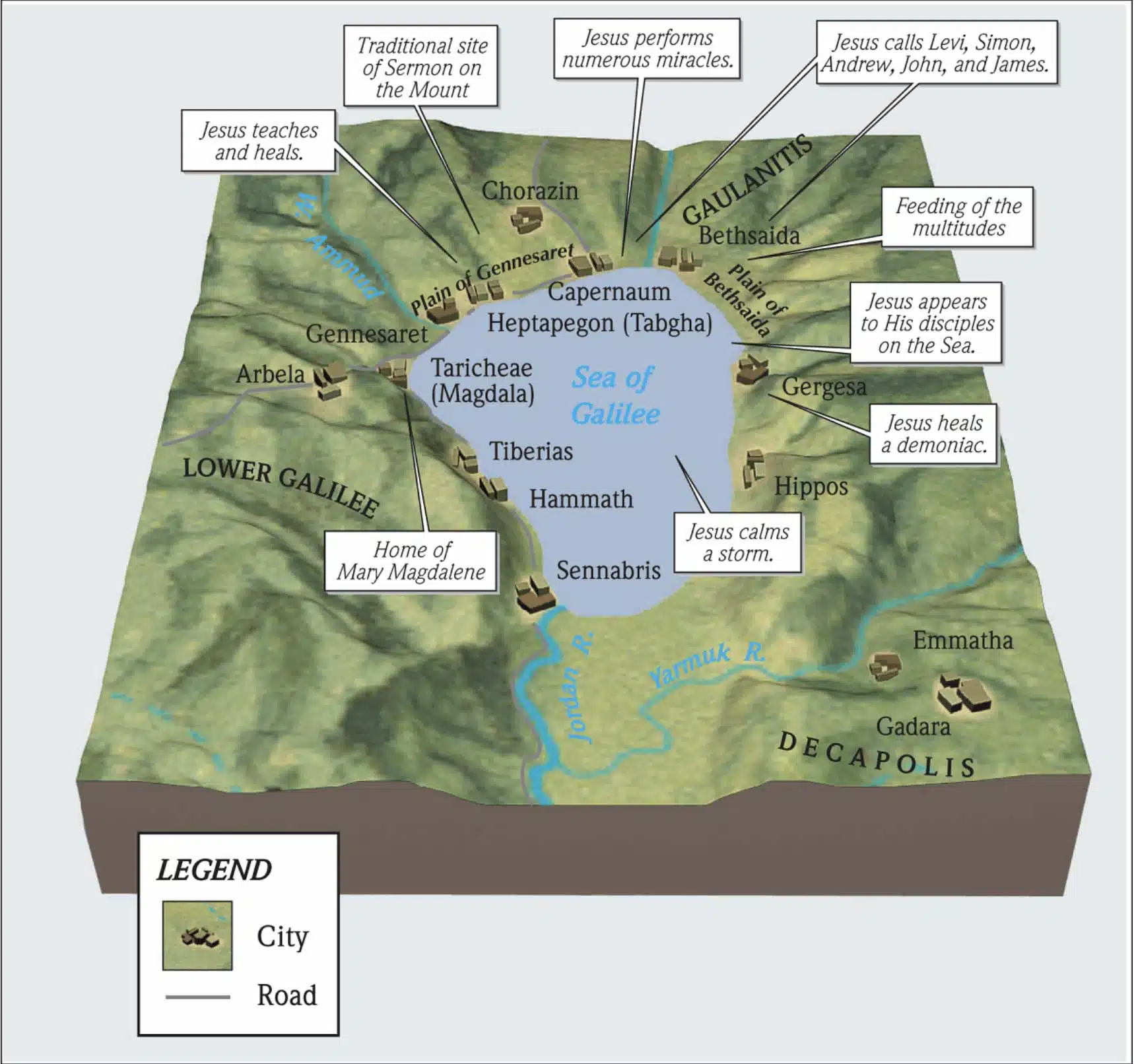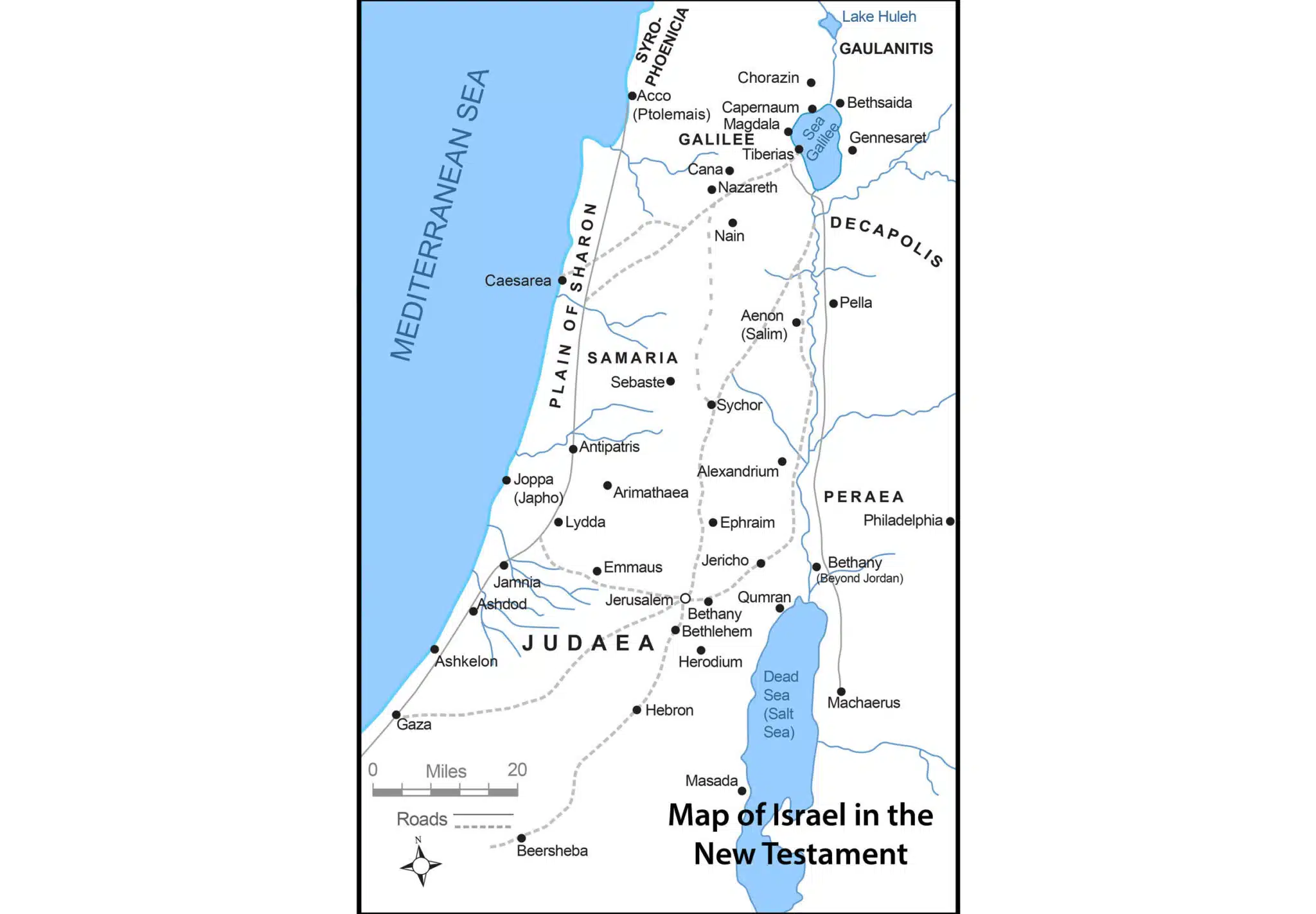Jesus continues explaining fear to His disciples. He tells them not to fear men who can only harm the body but not the “psuche” (life/soul). Instead they are to fear God who can destroy both the body and the “psuche” (life/soul) in Gehenna, a valley bordering Jerusalem which He uses as a metaphor for evil.
The parallel Gospel account of Matthew 10:28 is Luke 12:4-5.
Having taught His disciples to not fear those who would persecute them because God is an omniscient judge who understands all things about their situation (Matthew 10:26). Jesus provides His disciples a method for prioritizing their fears.
Do not fear those who kill the body but are unable to kill the soul (v 28). The two critical terms in this statement are the body and the soul.
The body primarily refers to a person’s physical life. The body is external. The body is what allows a person to interact in the physical world. When a person’s body stops functioning and dies, their soul is separated from the physical world and that person is unable to interact within the physical world. The soul continues to live apart from the body. The soul therefore is the actual life of the person.
Within the context of this passage, the body can also refer to, by extension all the external goods a person enjoys within their earthly lifetime: health, material possessions, political liberties, social status, etc. The body and its earthly goods are important, but they are not the most important.
The soul refers to a person’s core identity, their true life. The Greek word used for soul is “psuche.” The “psuche” is the essence of who a person is. It is their inner character. The “psuche” continues to exist after the body returns to the earth as dust. The organs of the “psuche” are the heart, mind, and will. In the book of Genesis, when God created man, the Greek Septuagint (Greek translation of the Old Testament) says when God breathed into man’s body, that “man became a living psuche” (2:7). Man has a body; he has a spirit; but he fundamentally is a soul (“psuche”). A person’s “psuche” is who that individual is.
Jesus’s command, Do not fear those who kill the body but are unable to kill the soul (v 28), informs His disciples of the extent of the danger that they will face for following Him. Earthly rulers and mobs will kill the bodily lives of Christ’s followers for the sake of extending or preserving their earthly power. Indeed, all of the original twelve disciples with the exception of Judas Iscariot will be persecuted for their faith. And according to scripture and Christian tradition, all but John will be executed for their obedience to Christ. Following Jesus will cost them their physical lives. Following Jesus will be the reason their “psuche” will be separated from their bodies.
They will be beaten, imprisoned, tortured, beheaded, and crucified for following Jesus. These are grave matters and natural fears. But these natural fears are not the most important thing followers of Christ are to fear. They are not to let their natural fears of physical death at the hands of those who kill the body keep them from their mission and goal. Men can kill earthly bodies and put an end to physical lives but are unable to harm their inner lives, their “psuche,” and therefore are not to be feared.
But while Jesus says they are not to fear such men, but rather fear Him who is able to destroy both “psuche” (soul) and body in Gehenna (hell) (v 28). The “Him” they are to fear is God. The word translated “hell” is Gehenna, which is a valley bordering Jerusalem, and is used here as a metaphor for corruption being cleansed with fire.
This pattern parallels the terror of the Israelites at Mt. Horeb and the odd comfort that Moses gives them.
“Then they said to Moses, ‘Speak to us yourself and we will listen; but do not have God speak to us, or we will die!” However, Moses said to the people, “Do not be afraid; for God has come in order to test you, and in order that the fear of Him may remain with you, so that you will not sin.’” (Exodus 20:19-20)
In this passage the children of Israel are afraid that they will physically die if they continue to hear God’s terribly awesome voice. Moses assures them that physical death is (comparatively) not that big of a deal and that they should not be afraid of it. Instead, what they should really be afraid of is sinning and displeasing God. God is a consuming fire (Deuteronomy 4:24; Hebrews 12:29). His judgement fire will assess all the deeds of each believer, and divide the works done for God from those done to be seen by men. The Apostle Paul depicts works done to be rewarded by men as “wood, hay, straw” – materials that burn easily and quickly, while works done as unto the Lord he depicts as “gold, silver, precious stones” (1 Corinthians 3:12). It is the fire of God’s judgement that will reveal which is which. As Jesus stated earlier in this chapter, God and only God is the True Judge of all.
David also testifies to this same principle of fearing God over man when he wrote,
“When I am afraid,
I will put my trust in You.
In God, whose word I praise,
In God I have put my trust;
I shall not be afraid.
What can mere mortals do to me?”
(Psalm 53:3-4)
Fear, like love, is a powerful motivation. Fear can grip hearts and paralyze minds deep within making it extremely difficult to dislodge and overcome through rational thought alone. An effective way to deal with unhealthy fear is not to wish it away, but to replace it with a healthy fear. One of the ways we can seek first the Kingdom of God and His righteousness (Matthew 6:32), is to prioritize our fears according to what God tells us we should fear. The Bible repeatedly says that we are to fear God above everything else. See Deuteronomy 10:12, Deuteronomy 31:6, Job 28:28, Psalm 33:8, Psalm 34:4, Proverbs 1:7, Proverbs 19:23, Proverbs 29:25, Ecclesiastes 12:13, Philippians 2:12-13, Hebrews 10:26-31.
Here in Matthew, Jesus says that instead of letting the unhealthy but real fear of man control us and direct our choices, we are to replace it with a proper fear of Him who is able to destroy both “psuche” (soul) and body in Gehenna (hell) (v 28).
It is clear that Jesus is teaching His disciples to have a fear of God over fear of man. But what does He mean by destroy both soul (“psuche”) and body in hell (Gehenna)? (v 28).
As we have already noted, the term for soul is “psuche” which means our core self or identity. It is that which will continue of ourselves after physical death. “Psuche” is our heart and its desires, our mind and its consciousness, and our will and its choices. It is our very existence and life. Soul/“psuche” is often taken as a synonym for spirit. But the Bible clearly distinguishes these two metaphysical terms when talking about human beings. Hebrews 4:12 says, “For the word of God is living and active, and sharper than any two-edged sword, even penetrating as far as the division of soul and spirit.”
Man has a physical body, an immaterial spirit, and an immaterial soul. The Bible teaches that because of sin, people are spiritually dead (Genesis 2:17); that by God’s grace their spirit (Greek term “pneuma”) becomes alive when they believe that Jesus is God and place their hope in Him (John 3:6-16, Ephesians 2:1-9, Romans 8:16, 2 Corinthians 5:17). When a person’s spirit is made alive by God’s grace, that person is forever in God’s family (John 1:12, Romans 8:15-17). Nothing can separate or remove them from the goodness of His love (John 10:28-29, Romans 8:31-39). God has justified them (Romans 3:21-26) and declared them righteous (Romans 5:1). This gift of eternal life and righteousness in Christ is irrevocable (Romans 10:4). Their spirit is saved for all eternity and they forever belong to Jesus.
God’s salvation of man’s spirit (“pneuma”) is often called “justification.” It is not earned. It is His gift, freely given, for everyone who believes in Jesus. And the spirit (“pneuma”) of a believer in Jesus is instantly and forever made alive the moment he or she believes in Christ.
What remains for the believer is for the soul (“psuche”) to be conformed into the image of Jesus (Romans 8:28-30, 12:2, James 1:21, 1 Peter 1:9, 2:11). It is for the heart to love the things God loves, the mind to share God’s perspective, it is for the will to choose good as God defines good. This is a process. This process of soul-conforming is called “sanctification.” Sanctification saves the core of who the believer is from the devastation of loving what is evil, embracing a faulty perspective, and choosing what will result in destructive consequences. Sanctification occurs when we trust God by faith throughout the daily trials and decisions we make. It is the process of achieving our final destiny of being conformed to the image of Christ (Romans 8:29).
As believers, we are saved from being separated from God for all eternity and are safe from eternal damnation in the Lake of Fire, but the “psuche” of every believer living on this earth is in need of being renewed and made like Jesus. It is in need of being saved from the power of sin to heap negative consequences upon us through our poor choices. Why then does Jesus tell His disciples (whose spirits have already been saved from hell through their belief in Him) to fear Him who can destroy their souls in hell? (v 28). What is He talking about?
The word in the original Greek for this passage, translated as hell, is one we have previously encountered. It is Gehenna. Gehenna is the Greek term for the “Valley of Hinnom”, transliterated from the Hebrew term “Ge-Hinnom”. This valley was and is to the immediate south of Jerusalem’s city walls; it still bears this name to this day. From the Kingdom of Judah through the time of Jesus, it functioned as the city trash heap. There all the waste was burned away, including dead carcasses.
Gehenna is one of the terms Jesus employs to illustrate the effect of missing the Kingdom through making poor choices (Matthew 5:22, Matt. 5:29, Matt 5:30, Matt. 18:9, Matt. 23:15, Matt. 23:33, Mark 9:43, 9:45, 9:47, Luke 12:5). The image of Gehenna, the trash dump, stands in contrast with living inside the city. It includes being excluded from the glory that occurs inside the city, with the King at His coronation. Unfaithful believers miss out on the celebration; they miss the banquet of honor altogether (Matthew 8:12). They are in the Hinnom Valley, in the dump, instead of attending the great event as a guest of honor. Another possible image that Gehenna evokes is that of purifying the “psuche” and burning away the worthless works and fleshly desires. Since it is the destiny of each believer to be conformed to the image of Christ, it seems evident that impurities must be removed either through faithful living in this life, making faithful choices in the midst of difficulty, or the impurities must be removed some other way.
There are two apparent applications of the image of Gehenna for this passage. One is that God will use the natural cause-effect of sin to burn away the impurities in our lives on this earth. We see this in Romans 1:24, 26, 28 where any person who insists on choosing sin is turned over by God to their own lusts as chastisement. The image of being turned over to Gehenna would seem to parallel the Romans passage, as well as Exodus 20. We should fear the immense damage sin will do to our “psuche” if we are turned over to its grasp, to serve its ways. The world markets sinful living as “living it up.” A true perspective is that such living leads to consequences that are death (Romans 6:26). Death, or separation, of fulfilling purpose, death of harmonious relationships, death of lasting rewards, etc. This application seems apparent.
Another prospective application of the image of Gehenna is as a broad picture of God’s judgement. In addition to God turning over those who pursue sin to the natural consequences of that behavior, as in Romans 1, God will actively judge the works of His people. It could be that Gehenna is also being used as a picture of believers having “wood, hay, straw” works burned away, while those faithful believers whose works were refined as “gold, silver, precious stones” are inside the city serving and sharing the throne with the Great King.
Whatever was intended, the disciples would clearly have understood the clear contrast, that fearing God was a good idea, and fearing the loss of life due to persecution was a bad idea. As application of this verse, it seems apparent that the main point is that there is an immense upside for any believer who serves courageously in truth and love, and an enormous loss if we allow fear of loss in this world to deter us from such a path. Instead of trusting God to sanctify us through the trials of this life, the unfaithful believer misses the present reward of knowing God and the future glory of great rewards, including reigning in harmony with Him in His Kingdom.
For a fuller description of Gehenna please see the commentary for Matthew 5:21-22, and or the Bible Says article: “What is Hell? Gehenna and the Outer Darkness”
In this passage Jesus is warning His disciples that it is more dreadful to miss the future glory of co-reigning with God in the New Earth than it is to die. Ultimately God will reward them for their faithfulness.
“Therefore, those also who suffer according to the will of God shall entrust their souls (“psuche”) to a faithful Creator in doing what is right.” (1 Peter 4:19)
Biblical Text
28 Do not fear those who kill the body but are unable to kill the soul; but rather fear Him who is able to destroy both soul and body in hell.
Check out our other commentaries:
-
Matthew 6:22-23 meaning
Jesus gives a short parable about what the eye can see to emphasize the importance of spiritual awareness. To have a true perspective. If our...... -
Jesus and the Messianic Fulfillments of Passover and Unleavened Bread meaning
There are many ways in which the original Passover events foreshadowed Jesus as the Messiah and God’s plan to redeem the world....... -
Matthew 10:24-25 meaning
Jesus informs His disciples that they will not be greater than Him, but they can be like Him. This likeness (and their greatness) will come...... -
Creation meaning
“By faith we understand that the worlds were prepared by the word of God, so that what is seen was not made out of things...... -
Matthew 6:1 meaning
Jesus presents the basic warning he will repeat with various examples throughout the next several verses. He warns against displaying outward acts so others will......





